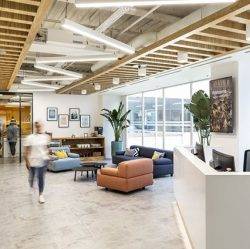To provide the best experiences, we use technologies like cookies to store and/or access device information. Consenting to these technologies will allow us to process data such as browsing behaviour or unique IDs on this site. Not consenting or withdrawing consent, may adversely affect certain features and functions.
The technical storage or access is strictly necessary for the legitimate purpose of enabling the use of a specific service explicitly requested by the subscriber or user, or for the sole purpose of carrying out the transmission of a communication over an electronic communications network.
The technical storage or access is necessary for the legitimate purpose of storing preferences that are not requested by the subscriber or user.
The technical storage or access that is used exclusively for statistical purposes.
The technical storage or access that is used exclusively for anonymous statistical purposes. Without a subpoena, voluntary compliance on the part of your Internet Service Provider, or additional records from a third party, information stored or retrieved for this purpose alone cannot usually be used to identify you.
The technical storage or access is required to create user profiles to send advertising, or to track the user on a website or across several websites for similar marketing purposes.
 The TUC and the GMB have launched a new disability passport to help the nearly 1 million (946,010) disabled people who fall out of work or switch employers each year to get the support they need. Disabled people can leave their jobs for many reasons. One preventable reason is when employers fail to carry out their legal duty to make – and keep in place – the reasonable adjustments their disabled staff need to do their jobs.
The TUC and the GMB have launched a new disability passport to help the nearly 1 million (946,010) disabled people who fall out of work or switch employers each year to get the support they need. Disabled people can leave their jobs for many reasons. One preventable reason is when employers fail to carry out their legal duty to make – and keep in place – the reasonable adjustments their disabled staff need to do their jobs.










 With the rise of both cloud-based technology and the worldwide gig economy, the last ten years of the 21st century have seen some near-revolutionary changes in workplace practice. Entrepreneurs everywhere have been more than happy to make use of these developments, taking advantage of the new business models these changes have brought. For example, IDG found that
With the rise of both cloud-based technology and the worldwide gig economy, the last ten years of the 21st century have seen some near-revolutionary changes in workplace practice. Entrepreneurs everywhere have been more than happy to make use of these developments, taking advantage of the new business models these changes have brought. For example, IDG found that 


















February 21, 2019
Why the gender pay gap is an enduring challenge for many organisations
by Heejung Chung • Comment, Workplace
(more…)